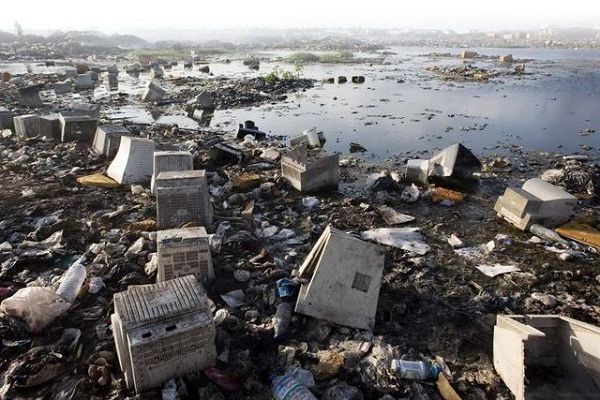
Deal with waste, poor air quality; African cities urged
Speakers at a waste financing workshop in Accra have called for a strong partnership among governments, the private sector and the citizenry to pursue more ambitious climate actions to help African cities deal with waste and poor air quality.
They also suggested the need for the public, private sector and civil society organisations to commit more investments into infrastructure including the manufacturing of compost as well as establishment of recycling plants to improve waste management in cities.
According to the speakers, with rapid population growth, urbanisation and the changing consumption patterns, waste generation was expected to nearly double to 2.2 billion tonnes a year by 2025, requiring that actions be stepped up to handle waste effectively.
Speakers
The speakers at the discussions were the Chief Executive of the Accra Metropolitan Assembly (AMA), Mr Mohammed Adjei Sowa; the Coordinator of the Municipal Solid Waste Initiative of the Climate and Clean Air Coalition (CCAC), Ms Sandra Mazo-Nix, and the Deputy Regional Director of C40 Cities Africa, Mrs Gifti Nadi.
The five-day event was attended by 28 delegates from 13 cities in Africa, Asia and Latin America who shared experiences in waste management and how cities can source for funds to develop waste management projects in their respective countries.
Time to act
In her address, Mr Sowah, who is also the Vice Chair of C40 Cities Climate Leadership Group, said as cities across south of the globe grew in terms of both population and economic performance, there was consequently an increasing amount of waste that was being generated.
However, he said, many of the waste systems in cities were already stretched beyond their limits, thus leaving cities to experience real challenges in collecting and disposing of the gargantuan amount of waste produced every day.
“Accra alone produces about 3,000 tonnes of solid waste every day, equivalent to about 150 large solid waste trucks. Larger cities in the region, such as Lagos, produce roughly 15,000 tonnes of waste per day,” he stated.
“If we continue on this path, by 2030, Africa, Asia and Latin America will have doubled the amount of waste they produce compared to today. Needless to say, if we do not act now, we will be submerged by our own waste, contaminating our air, soil and water and threatening livelihoods,” Mr Sowah said.
Prioritise waste management
Ms Mazo-Nix said inadequate removal and treatment of waste posed a serious threat to human health and the environment.
She said 40 per cent of the world’s population still lacked access to basic waste management infrastructure and until such an issue was addressed, the planet’s environmental challenges would remain unsolved.
“When waste is unsustainably managed, it becomes a breeding ground for toxins and microbes that contaminate the air, soil, and water,” she said.
She said globally, an estimated 40 per cent of waste was burned openly and dangerously polluted the air and harmful dioxins, furans and black carbon were released into the atmosphere.
She, therefore, urged city authorities to prioritise waste as it related to all the sustainable development goals (SDGs).
“We must lobby our countries so that waste is included in Nationally Determined Contributions (NDCs) in order to stimulate finance for waste management projects,” he added.
AMA commended
For her part, Mrs Nadi said from capacity perspective, cities must address waste management collections, sorting and disposal and invest in new systems and technologies.
She commended the AMA for implementing what she described as best practices in improving collection, safe disposal and recovery of waste in the city and establishing the most advanced waste processing infrastructure in West Africa.
